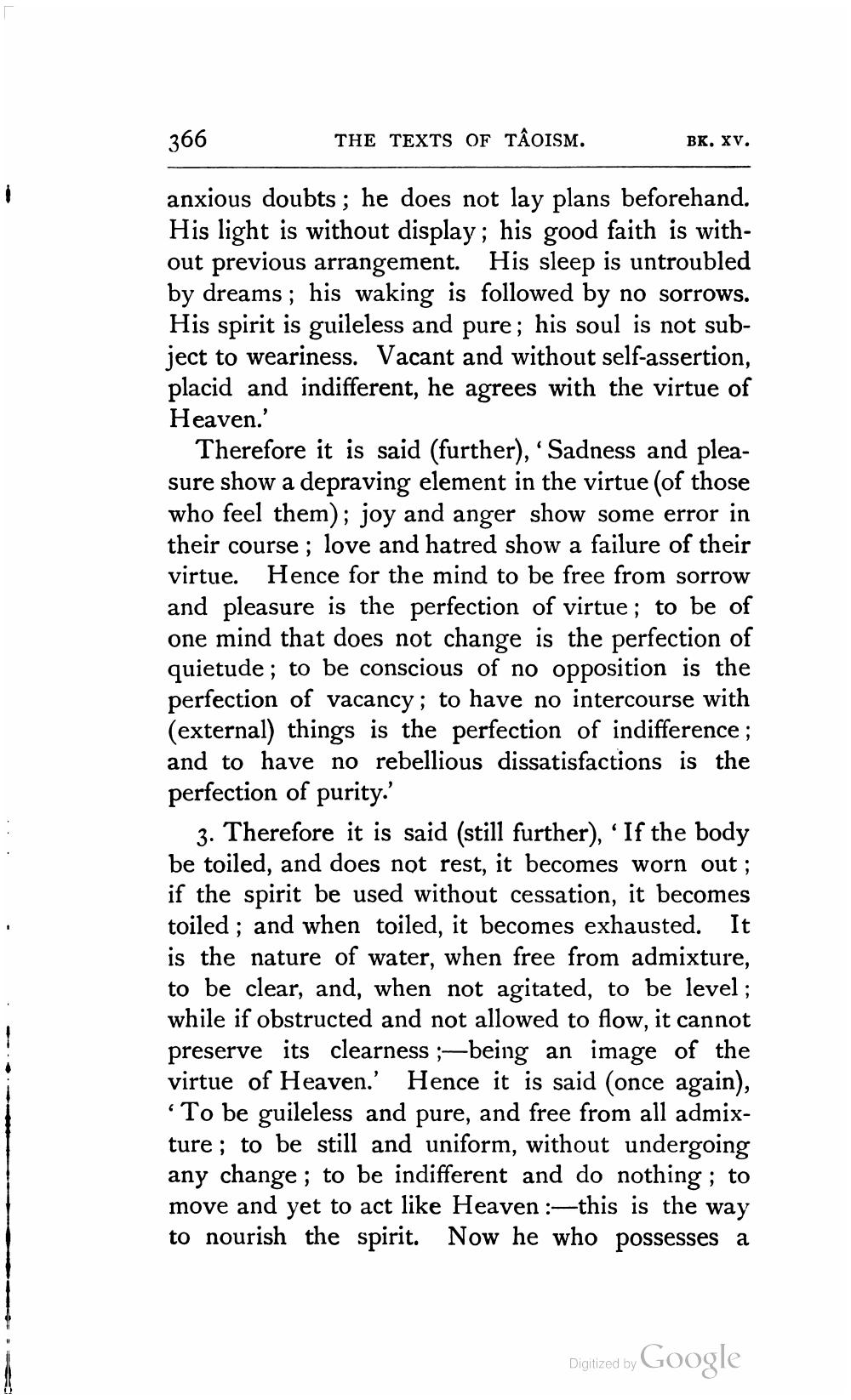________________
366
THE TEXTS OF TAOISM.
anxious doubts; he does not lay plans beforehand. His light is without display; his good faith is without previous arrangement. His sleep is untroubled by dreams; his waking is followed by no sorrows. His spirit is guileless and pure; his soul is not subject to weariness. Vacant and without self-assertion, placid and indifferent, he agrees with the virtue of Heaven.'
BK. XV.
Therefore it is said (further), 'Sadness and pleasure show a depraving element in the virtue (of those who feel them); joy and anger show some error in their course; love and hatred show a failure of their virtue. Hence for the mind to be free from sorrow and pleasure is the perfection of virtue; to be of one mind that does not change is the perfection of quietude; to be conscious of no opposition is the perfection of vacancy; to have no intercourse with (external) things is the perfection of indifference; and to have no rebellious dissatisfactions is the perfection of purity.'
3. Therefore it is said (still further), 'If the body be toiled, and does not rest, it becomes worn out; if the spirit be used without cessation, it becomes toiled; and when toiled, it becomes exhausted. It is the nature of water, when free from admixture, to be clear, and, when not agitated, to be level; while if obstructed and not allowed to flow, it cannot preserve its clearness ;-being an image of the virtue of Heaven.' Hence it is said (once again), 'To be guileless and pure, and free from all admixture; to be still and uniform, without undergoing any change; to be indifferent and do nothing; to move and yet to act like Heaven:-this is the way to nourish the spirit. Now he who possesses a
Digitized by Google




